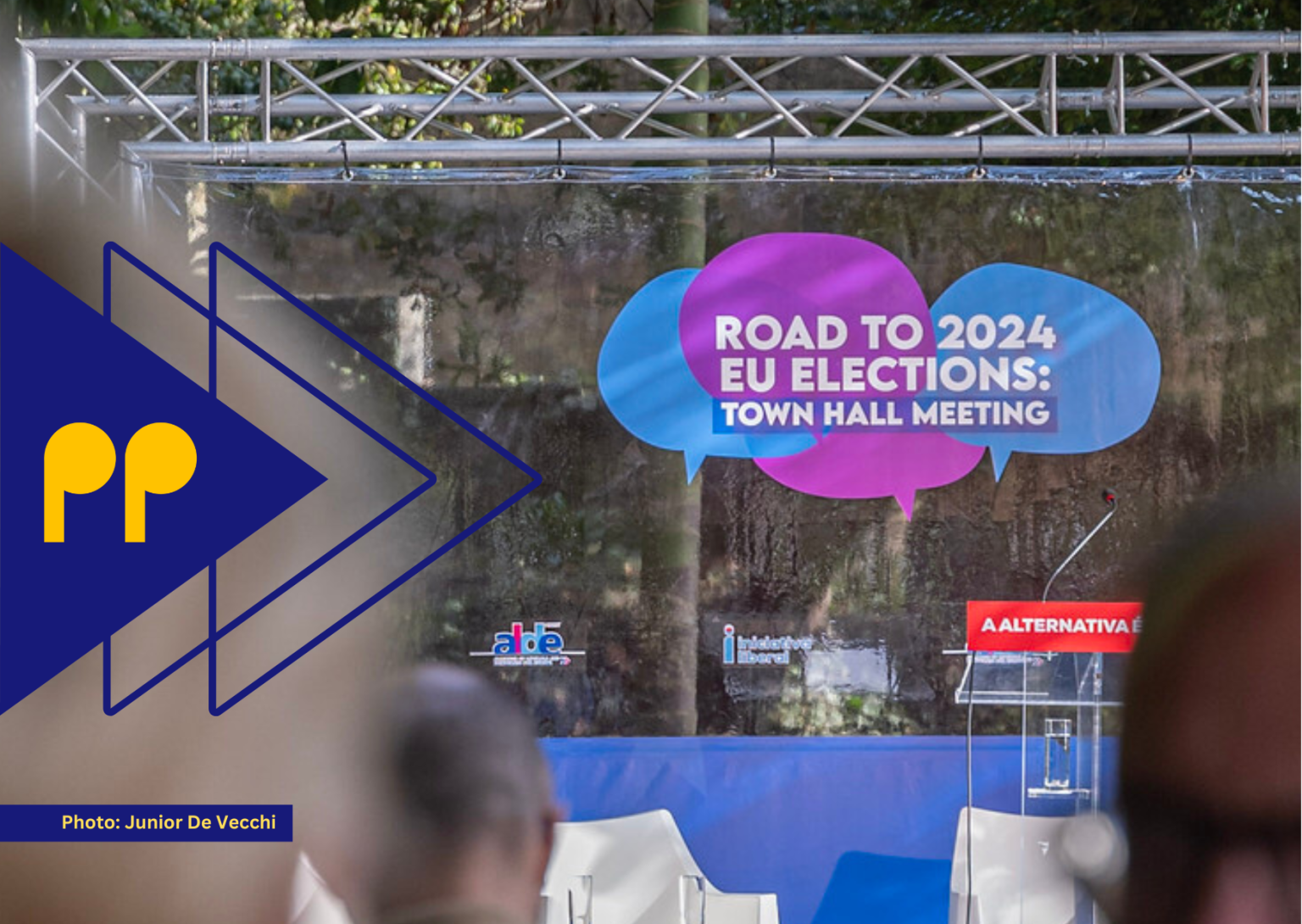Crafting a manifesto for elections is a complex and lengthy process, requiring the collective effort of hundreds, numerous consultations, and multiple rounds of drafting and feedback. Yet, it remains a crucial step in any party’s electoral preparations. As European political parties gear up to unveil their election manifestos in the coming weeks, I took the opportunity to delve into the process with the Alliance of Liberals and Democrats for Europe (ALDE) Party. Our discussion focused on their approach to integrating citizen, civil society and industry input into the manifesto ahead of the 2024 European elections.
The complexity of drafting a European election manifesto
An election manifesto is a document outlining the policies and commitments a party pledges to implement upon election. Drafting election programmes poses significant challenges for national parties, yet the stakes are much higher for European parties. Firstly, they must address the diverse priorities and challenges of 27 EU member states: they should cater to audiences with varying cultural and socio-economic backgrounds and different levels of political engagement.
Secondly, there’s an added responsibility to articulate a vision for the European Union’s role on the global stage. It’s also crucial to understand that EU citizens do not directly vote for European parties, making the manifesto drafting process serve dual purposes: to provide a foundational campaign platform for member parties across Europe and to act as a bridge connecting citizens with the European Union.
ALDE’s participatory approach
Back in 2022, ALDE embarked on a comprehensive journey to gather inputs across the spectrum, with the document’s final adoption scheduled for March at the Extraordinary Congress in Brussels. Yet, the groundwork for identifying priorities and focus areas began much earlier. Preliminary efforts included conducting research and surveys to identify what matters to EU citizens across different countries.
Daniela Morales Garcia, Senior Policy Adviser at the ALDE Party, highlighted the significant contribution of their activities during the Conference on the Future of Europe in gathering valuable insights. The feedback from these events and surveys was instrumental in shaping the manifesto’s focus areas. Consequently, the party drafted a 15-page manifesto aimed at bridging the diverse liberal viewpoints within its membership, providing a unifying platform for all member parties to rally behind during their campaigns.
Stages of manifesto development
Overseeing this ambitious project is a committee of 19 representatives, spearheaded by Vice President and German MEP Svenja Hahn. In its second stage, the party solicited feedback on national priorities from its members during dedicated sessions beginning in 2022. Externally, it reached out to the public through town hall meetings and sought input from stakeholders like industry, civil society, trade associations and academia. An online portal was also established to allow anyone to submit proposals for the manifesto, yielding around 200 proposals from both citizens and organisations.
In February 2023, expert workshops targeted civil society and academia to fine-tune the manifesto’s priorities, followed by six town hall meetings in countries like Denmark, Lithuania, Bulgaria, Latvia, Portugal, and Italy from June to September. These meetings attracted around 500 participants. The objective of these town hall meetings was to minimise political speeches and do a listening exercise.
The biggest takeaway from the town hall meetings, says Garcia, is that people care about issues that affect their day-to-day lives. Topics such as the impact of AI on jobs, energy prices, transport networks, roaming and climate change were among the topics that were mentioned frequently by the citizens.
Finally, the dialogue with stakeholders and the expert workshops held after summer drafting aimed to tackle broad cross-sectoral issues rather than specific proposals. These dialogues and the online platform allowed the committee to bring innovative approaches to the table and gather hundreds of input from industry, trade associations and civil society.
The role of manifestos in voter engagement
Garcia believes that while European citizens recognise the significance of political party manifestos, these documents alone are unlikely to sway their voting decisions. She observes that citizens’ desire to be heard drives their engagement in the process, yet their voting choices are not only influenced by the manifestos. This raises the question: is the extensive effort and resources devoted to drafting manifestos justified?
The short answer is yes. It’s crucial for political parties to articulate their stances on a wide range of policy issues. The manifesto serves as a foundational tool for campaign strategies. “It’s not just the contents of the manifesto that matter, but how you leverage it in your campaign and communicate its messages to the public,” Daniela explains.
Tips for effective manifesto drafting
While the ALDE Party acknowledges their efforts in citizen and stakeholder engagement, we should note that there’s always room for improvement in political party activities across Europe.
- Leverage digital and in-person channels: Combine online and offline methods for deeper, more insightful feedback.
- Step out of the conference rooms: Opt for unconventional spaces to foster trust and increase engagement.
- Reach beyond your base: Engage with diverse groups to broaden perspectives and avoid echo chambers.
- Engage young voices: Tailor events to make young people more comfortable sharing their views.
- Talk less, listen more: Citizen engagement activities during the manifesto drafting should be more about collecting insights than campaigning. Voters want to feel heard and empowered.
- Consider non-EU perspectives: Include global insights from outside the EU to enrich the manifesto.
- Manifesto as a starting point: Use the manifesto to initiate meaningful conversations and actionable plans.
- Focus on everyday concerns: In the end, it’s all about the kitchen table issues.

